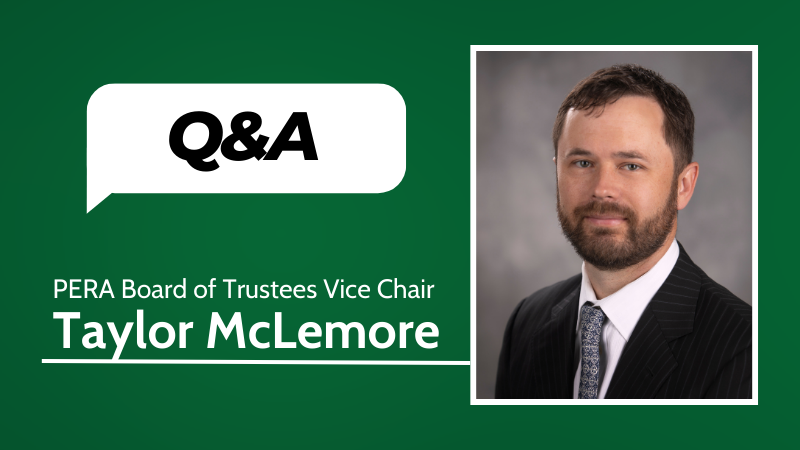Different PERA benefit payment options for civil unions are restricted by federal laws
Same-sex marriage is now the law of the land. However, it took a winding route before it was a surety in Colorado. In 2006, a majority of Colorado voters amended the Colorado Constitution to declare that marriage is between a man and a woman. Until 2013, same-sex couples were not allowed to have the same benefits as a married couple. For instance, same-sex partners did not have the spousal right to inherit property under Colorado probate laws, or join in health insurance policies as dependents. For PERA purposes, a same-sex partner would not qualify as a spouse who automatically takes a monthly benefit upon the death of his or her PERA member partner.
In 2013, the Colorado Legislature passed a law allowing any couple to enter into a civil union, which attempted to provide civil union spouses most of the benefits enjoyed by married couples. A civil union spouse is a “spouse” when the term is used in the Colorado state laws. However, a civil union does not satisfy federal laws using the term “spouse” or “marriage.” For example, a civil union couple cannot file taxes jointly. Even when the U.S. Supreme Court struck down the Defense of Marriage Act (DOMA) in the U.S. v. Windsor case and declared that the term “spouse” in federal law includes same-sex spouses, it did not make the same declaration for civil union spouses. In fact, the U.S. Department of the Treasury issued a revenue ruling specifically excluding civil union spouses from the term “spouses” under tax laws if the civil union was entered into in states in which same-sex marriage is banned.
Colorado county clerks started issuing same-sex marriage licenses in June 2014 when the 10th Circuit Court in Kitchen v. Herbert invalidated a Utah ban on such marriages. Because Colorado is in the 10th Circuit, the Colorado Attorney General and most legal scholars agreed that the case invalidated Colorado’s ban on same-sex marriage. When the Supreme Court made its decision in the Obergefell v. Hodges case in June of 2015, Colorado already had adopted the legality of same-sex marriages.
For all purposes, when a “spouse” is mentioned in the Colorado statutes that govern PERA, a same-sex married spouse will be treated exactly the same as opposite-sex marriage spouses have been treated under the law. No distinction is necessary.
While same-sex married spouses now have all of the benefits of federal and state law, civil union spouses still face some challenges. Because the U.S. Department of the Treasury issued its revenue ruling excluding civil union spouses from the benefit of the tax laws, the status of civil union spouses under federal law and state law is unclear. An example of such a challenge comes under PERA law, in which case a surviving spouse may not be entitled to a monthly survivor benefit for many years. The commencement of benefits mirrors what the couple would have expected if the member lived to retirement. The federal Internal Revenue Code allows this type of delay for surviving spouses – the federal government is willing to forgo immediate taxation when a spouse is the beneficiary. On the other hand, this delay is not allowed with non-spouse beneficiaries, and such beneficiaries must take a periodic payment starting immediately upon the death of their partner or take the whole balance within five years. PERA’s law does not provide for such immediate payments to a non-spouse beneficiary and does not provide a mechanism to distribute the account in five years. (Exceptions are for qualified children and dependent parents in certain situations.)
Another challenge is that under Colorado law, civil union spouses must go through the divorce process to officially settle their property when they separate. However, if a PERAPlus 401(k) or 457 Plan account is to be divided between the spouses upon divorce, PERA cannot release the ex-spouse’s funds while the PERA member is still working. Federal law does not allow pulling your funds from these retirement funds until you terminate from employment, but exceptions are allowed when divorce is involved. “Alternate payees” who are ex-spouses of members can take their portion of funds during a member’s employment. Not so for civil unions. Since they are not “spouses” under federal law, ex-spouses from a civil union cannot be “alternate payees.” Even if PERA is ordered to pay that portion when a member ultimately terminates employment, PERA would have to tax the member, not the ex-spouse, and it might be considered a gift subject to a gift tax.
Due to these challenges, PERA will have to make determinations on a case-by-case basis on how to treat civil union spouses under Colorado law pending an action by the state or federal government to clear up the inconsistencies. In the meantime, if you are in a civil union under Colorado law, but convert your legal status to a marriage, you would get all of the same benefits from PERA that an opposite-sex married couple gets under federal law.





What if we have an out-of-state civil union, live in Colorado, and are collecting PERA due to retirement and/or no longer working for a PERA employer? We have each other as beneficiaries with PERA. Do we need to dissolve the out-of-state civil union and then legally marry in Colorado or is everything okay as it stands now should one of us dies?
Hi Dorothy,
Good question! It would be best for you to call our Customer Service Department so we understand your situation fully and get you a correct answer. The Customer Service number is: 1-800-759-7372.